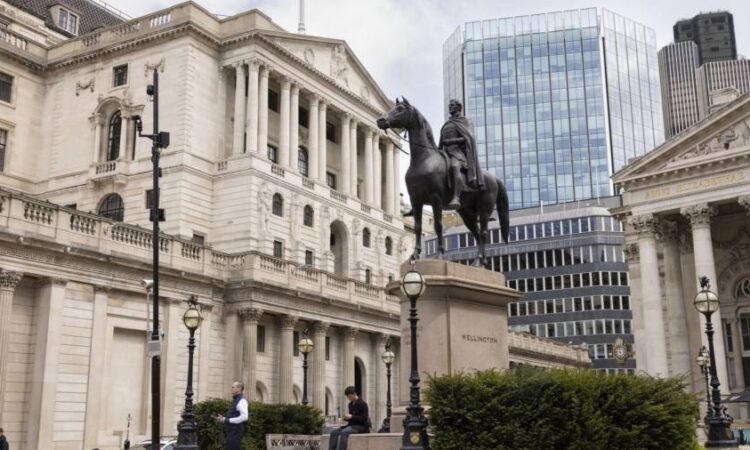
The US has cornered the majority of trades in the $100tn euro swap market as the stand off between London and Brussels over financial services pushed traders to send more of their deals to New York.
The swap market is used by investors to trade derivatives, as a hedge against sudden moves in interest rates and currencies. In March US venues took just over half of the market, the first time they had recorded the majority of activity.
Stock and bond prices shifted rapidly in March as investors fretted over the pace of global interest rate rises while jitters hung over the banking market following the failure of Silicon Valley Bank and Credit Suisse.
As markets moved rapidly, traders in Europe increasingly turned to the US to find a counterparty, according to data from Osttra, a UK post trade services company.
While the US’s market share hit 51 per cent, EU venues held a 35 per cent slice of the market, their lowest since December 2020. The UK market slumped to just 14 per cent, Osttra found. Before Brexit, Britain accounted for more than 70 per cent of the market.
The outflow has been accelerated by a stand-off between London and Brussels since the end of the Brexit transition period in January 2021, which has fractured the market.
Both sides have insisted that the banks and brokers they oversee must trade the most liquid and standard swaps on marketplaces they regulate.
To bolster their markets after Brexit, neither side legally recognised the trading venues in each other’s market — even though their rules were virtually identical.
Unable to use each other’s markets traders have increasingly sent their deals to US venues, known as “swap execution facilities”, because Britain and the EU deem American standards legally acceptable.
This has resulted in US-based venues, run by companies such as Tradeweb, Bloomberg and TP ICAP, gobbling up trading that used to take place in Europe.
“March was very busy, there was a lot more activity,” said Kirston Winters, chief risk officer at Osttra. “What’s really interesting with this widening is some of this will be mandated volume and some of it is voluntary volume,” he said.
He added that most marketplace operators “have three versions of themselves now, a US, UK and EU version. They’re having to run liquidity pools on each of those. Having to go to lots of places hunting for liquidity can’t be a good thing.”
The market for euro swaps has swelled in the last year as the European Central Bank has aggressively lifted interest rates to combat inflation. Deals with a notional value of $106tn were struck in the first quarter of the year, according to Isda, the trade body, a 24 per cent jump compared to the same time last year.
The derivatives market has become a hot point of contention between the UK and EU. European authorities have been pushing European banks to process more of their euro derivatives deals through clearing houses in the bloc, rather than through London. But the banks have resisted because they fear it would cost billions of dollars in extra costs and also threaten financial stability.





